Go For The Gold: Sales Lessons Learned From the Wide World of Sports
Few sports spectacles were as exciting as watching the 2008 Summer Olympics in Beijing! Millions tuned in around the world as Michael Phelps shattered previous Olympic records to become the most decorated Olympic athlete of all time. When Phelps was asked by Meredith Vieira on the Today Show what his coach Bob Bowman did most for him, Phelps replied Bowman encouraged him to “use your imagination, to shoot for the stars and to see the future.”But his coach also pushed him to the point of exhaustion, and when Bowman thought that was all Phelps could take, Bowman would push him even more.
All kids who are passionate about their sports dream of competing in the Olympics, or winning the Super Bowl, World Series or Stanley Cup of their sport. As the odds suggest, few ever get that opportunity. However, those who do commit themselves to a disciplined life of practice and training understand that raw talent is not the only ingredient for success. There are thousands of talented athletes who do not have the drive, determination and discipline it takes to succeed as a world-class athlete.
The same theory holds true for sales. The world is full of “would-be” sales superstars. Most every professional would say he or she wants to be a top producer in the company and wants to make a lot of money; just as many people want to lose weight and want to be in shape. The problem is, there is no commitment involved in wanting something. Many salespeople spend their time hopingfor the big account to come through, waiting for new assigned accounts to come their way andpraying that economic conditions improve. But the truth is, only the doing part actually leads to success. In fact, the biggest reason most salespeople fail is not for lack of knowledge, it’s that they do not have consistency of behavior to do what they know needs to be done on a daily basis.
Often times, just like in the case of Michael Phelps, a “coach” or a sales manager’s role is crucial. It is part visionary, part trainer, but mostly as a developer of talent to bridge the gap betweenpotential and performance. He or she is not there to motivate you … it is to hire independently motivated individuals and challenge and inspire them to reach peak performance. Their job is not todiscipline you, but to hire self-disciplined individuals who will create good habits without having to be micromanaged. Their job is not to instill passion, but to hire passionate people who love what they do and are committed to being the best in their given field.
Just as there are no guarantees for Olympic victory, there are no guarantees for triumph in the streets of sales. However, there are action steps that if implemented, will greatly improve your odds for success:
1. Focus on fundamentals and execution. There’s an old saying, “if you spend all your time watching the scoreboard, the ball’s going to hit you in the face.” While the U.S. basketball team was keenly aware of the score, their focus and energy was not on the scoreboard, but on the execution of their game strategy. Too often in sales, account executives and their managers become fixated on their sales sheets (scoreboard). Instead, if they practiced the sales fundamentals and executed their sales strategy, the scoreboard (sales sheets) would take care of itself.
2. Sales is a marathon. If sales were an Olympic sport, it would be a marathon, not a 100-yard dash. The most successful salespeople take a long-term focus on making their career, not just making their month. Look at daily, weekly and monthly billing as games, and look at the year as the season. Play for the year! You cannot manage your sales, you can only manage your time, your focus, your accounts, and your selling strategies. When effective, the sales will take care of themselves.
3. Practice the right technique. To be a top athlete, little is more important than training on the right technique. Practicing the wrong technique will do little to help an athlete’s career. The same is true in sales. Too often, sales people attend a one-day session, leaving excited and fired up about all the new tools and techniques presented, only to return to their offices to do the same things the same way. They can hear all the theories, and learn all the techniques, but as the athletes know, there is a big difference between seeing drills and learning the drills. Hearing what to do and seeing what to do does not translate to knowing what to do until you (as Nike suggests) “just do it.”
4. Practice those winning techniques daily. Sales training works only when a dedication to self-improvement is combined with daily application and practice of what is learned. While having apositive attitude is important, when it’s combined with positive activities you will finally see positive results. As you increase your competence, you will have an increase in confidence. As your confidence increases, so does your activity. As your activity increases your results will follow!
5. Feel it, see it, visualize it. Most Olympians would agree that their biggest competition in their quest for the gold may not be other athletes nor is it the physical routines; most likely, it’s the voices in their heads. There is usually a direct correlation between their confidence level going in to an event and their performance. If they visualize themselves nailing a routine, their chances are much greater than if they begin tentative and fearful of failure. The same is true in sales. A confident seller coming off the heels of a great sale will fair much better than those struggling with self-confidence. Visualize yourself achieving success and then “fake it until you make it.” Imagine that everyone is excited to talk with you.
6. Focus on your goals, not your obstacles. Whether you are going for Olympic gold or playing for “salesperson of the month,” there will always be obstacles. Typically, the bigger the goals, the greater the obstacles. However, a billboard for Accenture said it best, as it depicts Tiger Woods trying to hit around a tree that reads “they are only obstacles if you cannot see around them.” Recognize obstacles, but don’t let them stop you.
7. Recovery is part of the process. Rodeo riders know there will be times that you will get thrown off the horse. But they also know that if you don’t get right back on, your confidence will wane and fear will set in. The same is true in sales. The quicker you recover from a lost sale or an unsuccessful appointment, the sooner you will be back in the game.
All would agree, the Olympics were entertaining … but were they inspiring? Did they influence, arouse or motivate a change of behavior that will produce a change of results? What the world experienced was the end result of many days, weeks, months, and years of disciplined hard work and training. Do you have what it takes? You never know until you “go for the gold.”
About the Author:
Michael Guld is an author, speaker, entrepreneur and radio commentator whose business development expertise lies in increasing sales performance, marketing exposure, employee productivity and creating a world-class service experience. He is the president of System 21 and The Guld Resource Group and can be reached at (804) 356-7006 or at michael.guld@guldresource.com.
Optional Sidebar:
As sports fans know, a players stats breaks down key elements of their game to give an indication of their performance. In basketball key stats include points per game, field goal percentage, free throw percentage and rebounds per game. When you look back after a game is won or lost, there is usually a direct correlation between top players key stats and the resulting W or L. The same is true of sales. There are key metrics and “triggers of growth” that can provide short-term benchmarks that will help lead to long-term success. To be maximally successful, determine first where you are today by setting “baseline stats” with each of the below and then set mini-goals for the year.



